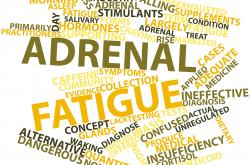Menopause, Life Changes, and the Problem of Fatigue
Though there are many things for women to agonize over during menopause, few things are more disruptive than the exhaustion they experience. In fact, fatigue is often the symptom that most affects a menopausal woman’s life.
Menopause is a dramatic time in a woman’s life, as she nears the permanent end of both fertility and menstruation. While some women celebrate the end of dealing with the monthly menstrual cycle, others lament the loss of that portion of their life. After all, menopause is a significant milestone for any middle-aged woman. The one thing that all menopausal women cannot help but notice is the annoying and disruptive collection of symptoms that often help to define this period in their lives.
Menopause symptoms range from the well-know hot flashes to irregular periods of bleeding, night sweats, mood swings, and difficulties in the sleep cycle. For many women, however, all of those symptoms pale in comparison to the extreme levels of exhaustion they experience. This fatigue is persistent, severe, and often unpredictable.
Causes of Menopausal Fatigue
The main reasons for fatigue issues during menopause are similar to the causes of fatigue in a number of other conditions. Sleeplessness, moodiness, and night swings can all contribute to increased stress, and that can elevate cortisol and cause tiredness. More importantly, however, the decrease in estrogen experienced during this period of life results in hormonal imbalances that cause progesterone to run amok. Without estrogen to counter its effects, that hormone increases the sense of weariness and sleepiness.
All of this leads to increased stress on the body, which is then followed by feelings of anxiety, and inability to concentrate and a loss of confidence. Depression often follows soon after. This is all part of a cycle of hormonal responses that can ravage the adrenals, soak the brain in cortisol, and leave any woman struggling to get the rest needed for recovery.
Impact of Menopausal Fatigue
Menopause fatigue impacts every aspect of a woman’s life. Though it is easy to focus on the physical effects of tiredness, the mental and emotional impact must not be ignored either. There is no area of a woman’s life that is not severely affected by these fatigue symptoms. A brief look at each of these three areas of concern will demonstrate just how bad the impact can be:
- Physical. As noted above, the physical devastation of menopause fatigue is clear to see. Women often report extended periods of time with disrupted sleep patterns, problems remaining awake during daylight hours, and generalized weakness and even pain. Untreated, these symptoms can persist for many years, ending only after the menopause process is complete.
- Mental. The mental effects are equally clear, though less visible to the outside world. Women suffering from this type of fatigue report problems in area like cognitive capacity, memory, and focus. Many struggle at work, as they have problems staying on task for extended periods of time. Without proper care, it is all too easy for the frustration these symptoms cause to devolve into feelings of hopelessness and depression. Even when that doesn’t happen, the cumulative effect of that mental burden wears even the most energetic woman down over time.
- Emotional. Potential depression is only one aspect of the emotional toll that this fatigue can take on any woman. Many find themselves struggling with their feelings of femininity, as well as feelings of loss. Some are resentful at the changes they experience, or angry at a world that often fails to understand how dramatic menopause can be. Extreme emotions of any kind can trigger even greater hormonal responses, and lead to increased levels of fatigue.
Overcoming Menopausal Fatigue
Though fatigue is a virtual certainty for women as they endure menopause, there is nothing that says that women have to just accept the situation. In fact, there are many things that a woman can do to mitigate the impact of this fatigue and continue to enjoy their quality of life. While lifestyle changes, drugs, and alternative treatment methodologies are often not enough to completely eliminate fatigue, they can be demonstrably helpful in elevating energy levels and making life bearable.
Lifestyle
There are many different lifestyle changes that can aid in the alleviation of menopausal fatigue – and, in fact, most fatigue situations. Here are some of the most important:
- Exercise each day. Do not engage in overly strenuous exercise, but do something to get the heart pumping and trigger that release of adrenaline.
- Yoga can be an especially effective exercise options for relieving the stress that often exacerbates fatigue, while meditation and breathing exercises can instill a greater sense of calm.
- Maintain a cooler temperature in your sleeping area to ensure that hot flashes are less disruptive to your sleeping pattern.
- Sleep! And when you still feel tired during the day, take a nap. In the end, there is no greater fatigue-fighter than good old rest and relaxation.
- Stay hydrated! Drink at least eight glasses of water each day.
- Focus on eating healthy, whole foods – and supplement them with vitamins and minerals to ensure that you are getting the nutrients you need.
Medications
There are a number of different medications that can also be beneficial for treating fatigue during menopause:
- Antidepressants can help to alleviate some of the worry and hopelessness that often enhances fatigue during this period in life.
- Birth control pills are sometimes effective against some menopause symptoms.
- Progesterone supplements have been demonstrated to be effective as well. Alternatively, many women seek out hormone replacement therapy to rebalance their hormones.
Alternative Therapies
For milder cases of fatigue, alternative therapies often provide positive results as well. These include a variety of herbal supplements, acupuncture, aromatherapy, and massage therapy. Each has its own benefits, but it often takes a combination of non-pharmaceutical solutions working in concert with one another to produce real results.
The important thing to take away from all of this is that there is hope. Menopause does not have to be a time of unrivaled agony and exhaustion! Work closely with your physician and figure out what treatment plan will work best for your symptoms, and then concentrate on making it work for you. You can enjoy even this time of your life, if you learn about how your body is changing, and take the right steps to adapt to these changes.
You might also be interested in:
- How to Deal with Menopause Fatigue? http://menopause-aid.blogspot.com/2011/06/how-to-deal-with-menopause-fatigue.html
- Fatigue and Menopause. http://www.mysecondspring.ie/menopause-symptoms/menopause-fatigue
- Menopause & Fatigue. http://www.remifemin.com/Menopause/Symptoms/Fatigue.aspx
- About Menopause & Fatigue. http://www.livestrong.com/article/157675-about-menopause-fatigue/


















Leave a comment